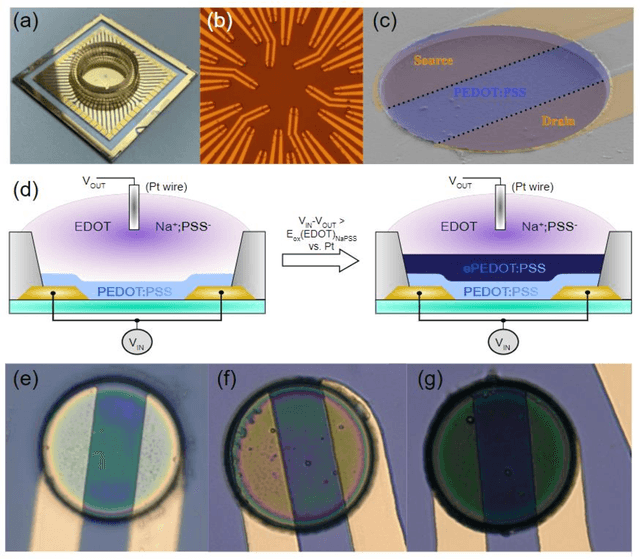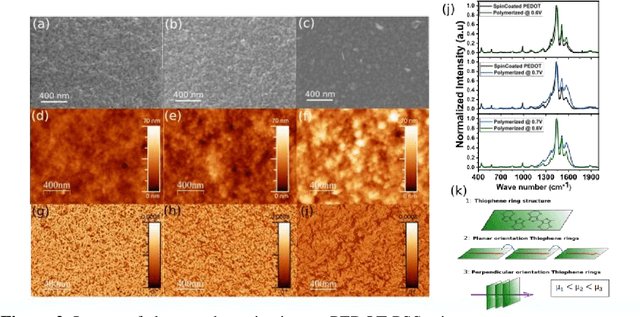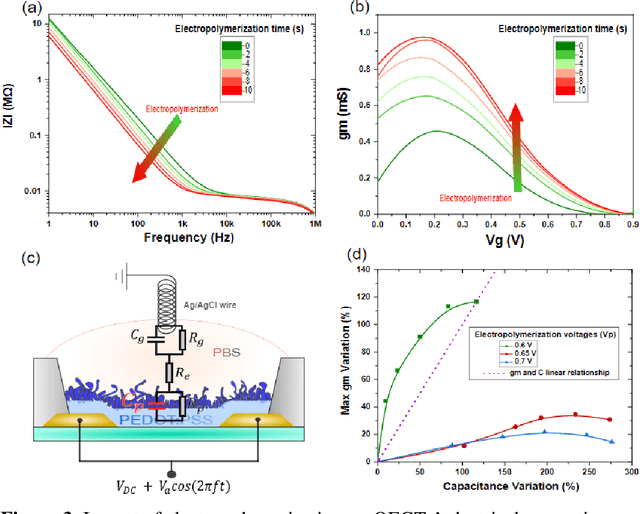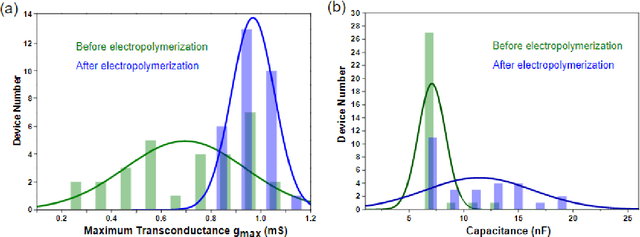Bio-inspired adaptive sensing through electropolymerization of organic electrochemical transistors
Paper and Code
Aug 30, 2021



Organic Electrochemical Transistors are considered today as a key technology to interact with biological medium through their intrinsic ionic-electronic coupling. In this paper, we show how this coupling can be finely tuned (in operando) post-microfabrication via electropolymerization technique. This strategy exploits the concept of adaptive sensing where both transconductance and impedance are tunable and can be modified on-demand to match different sensing requirements. Material investigation through Raman spectroscopy, atomic force microscopy and scanning electron microscopy reveals that electropolymerization can lead to a fine control of PEDOT microdomains organization, which directly affect the iono-electronic properties of OECTs. We further highlight how volumetric capacitance and effective mobility of PEDOT:PSS influence distinctively the transconductance and impedance of OECTs. This approach shows to improve the transconductance by 150% while reducing their variability by 60% in comparison with standard spin-coated OECTs. Finally, we show how to the technique can influence voltage spike rate hardware classificationwith direct interest in bio-signals sorting applications.
 Add to Chrome
Add to Chrome Add to Firefox
Add to Firefox Add to Edge
Add to Edge